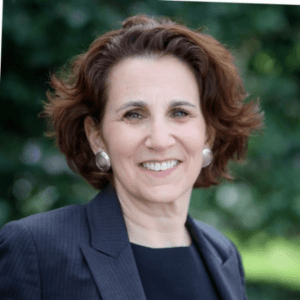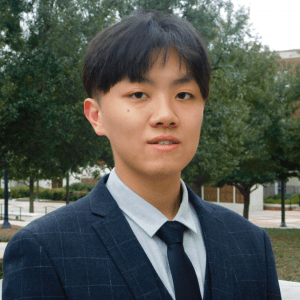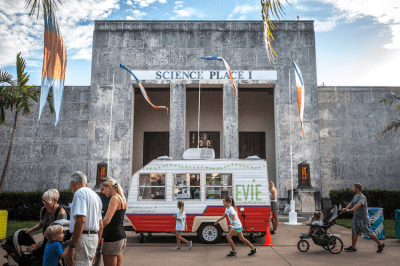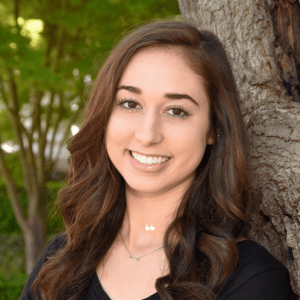| Alison Harwood is committed to promoting finance as a force for positive change. She is a consultant on sustainable and green finance and investing with impact and a Senior Fellow in Residence at the Milken Institute School of Public Health focused on mobilizing private capital to finance the SDGs.
Alison is a recognized leader in building capital markets in emerging market countries. She was Global Head of Capital Markets at the World Bank Group, leading operations to build local markets and market-based solutions and modeling ways to leverage advisory and financing resources to better address large-scale development challenges. Earlier, Alison was Director of the Capital Markets Practice at the Barents Group, KPMG’s emerging markets consulting arm, and Resident Advisor on financial sector reform with Harvard’s Institute for International Development in Indonesia. She began her career at the Federal Reserve Bank of New York. Alison has published and is a frequent speaker on emerging markets and sustainable finance. She is on the board of CiFi, which finances sustainable infrastructure in Latin America, and the Advisory Board and a program leader on sustainable and green capital markets at the Toronto Centre, leading work on green capital markets. She has an M.B.A. and Masters in International Affairs from Columbia University. To read more about the Hunt Institute’s work to develop future-focused solutions to some of the world’s biggest problems, please click here. For the latest news on the Hunt Institute, follow our social media accounts on LinkedIn, Facebook, Twitter, and Instagram. We invite you to listen to our Podcast called Sages & Seekers. If you are considering engaging with the institute, you can donate, or sign-up for our newsletter by emailing huntinstitute@smu.edu. |
Lab on a Chip Device for COVID-19
A group of multidisciplinary lab researchers collaborated with the Hunt Institute for Engineering and Humanity’s Global Development Lab and Dr. Ali Beskok, as he and his team research to develop a low cost, portable, point of care microfluidic device capable of diagnosing multiple conditions. As part of this project, a broader impact report authored by an interdisciplinary group of undergraduate students at the Southern Methodist University working in the Hunt Institute aimed to address the areas of greatest need in response to UNSDG #3 “to ensure healthy lives and promote wellbeing for all at all ages.” The report is titled Bridging the Gap in Diagnostics.
With the recent global pandemic, the team shifted its focus to COVID 19 antibody (immunity) detection. Dr. Beskok is quoted as saying, “Although the gold standard for antibody detection is the enzyme-linked immuno-sorbent assay (ELISA), its application is limited by its portability and high-cost operation. Its detection mechanism relies on receptor/target molecule reactions, which take place through diffusion-dominated transport kinetics. Therefore, the detection mechanism is quite slow and has low sensitivity. Unfortunately, the most recently developed lateral flow assays also exhibit low sensitivity and specificity, and these cannot be reliably used for determining the spread of COVID-19 infection.”
The Multiplexed Assay for the Immune Response to COVID-19 (MAIRC) system the team is developing will offer a quantifiable, accurate, fast, and inexpensive diagnostic method with its customized chips, electronics hardware, and software interface, able to detect immune response to COVID-19 based on human IgG, IgM, and IgA antibodies. The finalized microfluidic chip can be mass-produced with plastic molding or wafer-scale fab.
To read more about the Hunt Institute’s work to develop future-focused solutions to some of the world’s biggest problems, please click here. For the latest news on the Hunt Institute, follow our social media accounts on LinkedIn, Facebook, Twitter, and Instagram. We invite you to listen to our Podcast called Sages & Seekers. If you are considering engaging with the institute, you can donate, or sign-up for our newsletter by emailing huntinstitute@smu.edu.
Scott Zuo
Scott Zuo is a junior at Southern Methodist University working toward a B.S. in Management Science and Statistics. He serves as a member of the SMU Statistics Club and as an active member of the American Statistics Association (ASA).
Scott has been recognized as a Distinguished Scholar and as a Discovery Scholar. After completing his undergraduate studies, Scott would like to go to a graduate school for further study in the field of statistics. In his free time, he enjoys movies, music, and basketball.
At the Hunt Institute, Scott’s skills in analytics and managing data have been utilized in his current role on the ImpactMap project where he has been appointed as Data Manager. This job includes managing data content and tools to make the ImpactMap more effective and useful, as well as researching best practices, and collecting, organizing, and evaluating data from various sources. Scott also works in the Global Development Lab as an Undergraduate Research Analyst. He has worked on the Moments that Matter Phase II project which will help business development and support providers nationwide to improve how they engage with women-veteran entrepreneurs.
Scott finds his motivation at work to be “all the potential benefits of the projects of our Institute as well as the way we approach every task by applying our knowledge and wisdom to achieve our goals, all of these have built up the components that motivate me to keep working for the Institute and makes me feel fulfilled.”
To read more about the Hunt Institute’s work to develop future-focused solutions to some of the world’s biggest problems, please click here. For the latest news on the Hunt Institute, follow our social media accounts on LinkedIn, Facebook, and Instagram. We invite you to listen to our Podcast called Sages & Seekers. If you are considering engaging with the institute, you can donate, or sign-up for our newsletter by emailing huntinstitute@smu.edu.
Better Building with Compressed Earth Blocks
![]() In 2015, the United Nations adopted 17 long-term sustainability goals to improve global health, safety, and quality of life. Among those goals are plans to develop future-oriented industry, innovation, and infrastructure and to create sustainable cities and communities with a focus on reducing carbon emissions. With these goals in mind, the Hunt Institute’s Global Development Lab continues to work through the Better Building project is examining the effectiveness of using compressed earth blocks to investigate long-term energy-efficient structures.
In 2015, the United Nations adopted 17 long-term sustainability goals to improve global health, safety, and quality of life. Among those goals are plans to develop future-oriented industry, innovation, and infrastructure and to create sustainable cities and communities with a focus on reducing carbon emissions. With these goals in mind, the Hunt Institute’s Global Development Lab continues to work through the Better Building project is examining the effectiveness of using compressed earth blocks to investigate long-term energy-efficient structures.
Compressed Earth Blocks (CEB) are comprised of a mixture of local soil, sand, water, and a stabilizer (such as cement) that is machine-compacted into a mold and allowed to cure for approximately one month. These blocks provide the structure of buildings as alternatives to bricks or other construction materials. The Better Building project researches CEB’s effectiveness as a low-cost and sustainable building material and investigate strategies for scaling CEB into a widespread building material.

“Our society as a whole needs to leverage the forces of globalization, technological advancement, and climate change – what the UN calls ‘the three mega forces’ – for disruptive solutions to further inclusive sustainable economic development,” Director of the Hunt Institute Dr. Eva Csaky said. “We can reach this goal by harnessing the power of disruptive collaboration.” The CEB research partnership and collaboration between Dr. Brett Story and the Hunt Institute began in 2015. Dr. Story’s research for Phase I focused on the strength testing of CEBs under a variety of conditions including varying moisture levels, cement content, and soil type.
Phase II focused determining local soil characteristics for different types of soil found globally as a first step in standardization. Designing with CEB requires an understanding of the local soil conditions and how composition, moisture, and other variables interact and affect construction. This process is taught by Dwell Earth, an organization dedicated to spreading this knowledge through hands-on training workshops to share their efficient and intuitive building system. Founder, Adam De Jong, is an Affiliate in the Institute and has consistently provided his expertise to Dr. Story over the years as he expands his research now into Phase III.

Plans for Phase III will be to compare data pulled from three small-scale prototype structures built from insulated plywood, concrete masonry unit (CMU), and CEB. Duplicate prototypes will produce data to analyze from two locations, one set will be at the SMU @ Taos campus and the second set will be at the SMU’s main campus in Dallas, Texas.
Phase III’s objectives are to perform analyses and compare data from the test structures at both the Taos and Dallas campuses and investigate relationships between soil type and mix design, block strength, and thermal properties. This investigation will also include models developed by Dr. Story’s lab team, which includes Ph.D. students Jase Sitton and Robert Hillyard as well as undergraduate researchers Adriana Mena and Ziyu Sun. The Hunt Institute team includes an undergraduate project manager and the undergraduate researcher, Madison Rodriguez. This team will produce a report analyzing building requirements when using CEB in New Mexico which will inform the vision of a living laboratory in SMU @ Taos.
Dr. Story’s vision is, “…the end goal is to use the data obtained during this project to make recommendations for full-scale, more permanent structures than can be used by faculty and students at the SMU Taos campus. The information learned during this project will be used to start the design of a “living” laboratory, which would be a laboratory building constructed with CEB and instrumented with a variety of sensors. In this way, the structure is both the laboratory space as well as the test specimen.”
To read more about the Hunt Institute’s work to develop future-focused solutions to some of the world’s biggest problems, please click here. For the latest news on the Hunt Institute, follow our social media accounts on LinkedIn, Facebook, and Instagram. We invite you to listen to our Podcast called Sages & Seekers. If you are considering engaging with the institute, you can donate, or sign-up for our newsletter by emailing huntinstitute@smu.edu.
EVIE Keeps Evolving
The EVIE project is entering its third phase in the Global Development Lab at the Hunt Institute for Engineering and Humanity. Three years after its first public unveiling at Earth Day Texas in 2017, work on the mobile greenhouse has continued to push the boundaries of innovating a solution to Dallas’ fresh produce problem. The purpose of EVIE is to serve Dallas community members as a sustainable opportunity for fresh produce by encouraging their participation in the harvesting, maintaining, and general operations of a greenhouse.
EVIE’s name was derived from Eve, which is commonly associated with life and beginnings, appropriately matching the Institute’s goals for the project. In 2018, the Department of Agriculture identified 88 separate food deserts in Dallas County. Over half of the food deserts were in three southern portions of Dallas, encompassing close to 400,000 residents. EVIE is designed to be movable through areas lacking fresh produce and easily replicable to increase the availability of fresh produce across the food deserts. The first phase of EVIE focused on designing an easily replicable greenhouse model that could function in recycled environments, including an old, rickety Shasta trailer. In Phase II of the project, researchers from the Hunt Institute examined techniques that could facilitate irrigation, solar access, and temperature controls needed to maintain the greenhouse in any environment.
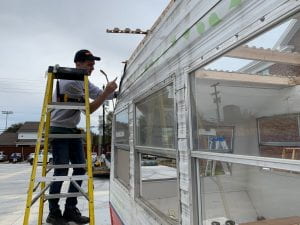
Before Phase III could begin, the SMU Engineers Without Boards Plant Lab team gave EVIE a much-needed makeover. The roof had a leak. The makeover was completed right before spring break when the COVID-19 Global Pandemic hit the Unites States. Students are working remotely but unable to physically work on EVIE or in Labs as of June 2020. When they are able to return and resume work, Phase III of EVIE plans to make EVIE nearly autonomous to limit work and outside effort required to maintain the greenhouse. To achieve sustainability, EVIE will run off a solar panel to supply power for any water pumping or climate control measures. In addition, a rain collection system will provide irrigation to the individual planters. Through both of these additions to the current mobile greenhouse, EVIE will be able to provide fresh, healthy produce without requiring significant labor or effort on the part of community members.
The findings from this project hope to contribute to the agriculture value-chain development in rural and urban areas by promoting community involvement and educating local schools, food banks, and churches on environmentally sustainable, hydroponic, aeroponic, and vertical greenhouse growing methods.
To read more about the Hunt Institute’s work to develop future-focused solutions to some of the world’s biggest problems, please click here. For the latest news on the Hunt Institute, follow our social media accounts on LinkedIn, Facebook, Twitter, and Instagram. We invite you to listen to our Podcast called Sages & Seekers. If you are considering engaging with the institute, you can donate, or sign-up for our newsletter by emailing huntinstitute@smu.edu.
Srikanth Mangalam
Srikanth Mangalam is an internationally recognized expert in risk and outcome-focused decision making in areas of social impact and sustainable development with over 25 years of experience in North America, Asia, Africa, Australia, and Europe. He is considered as a visionary and a thought leader and has pioneered innovative solutions to addressing complex socio-economic and sustainability challenges including public safety, food security, gender equity, climate, health, youth employment and small-scale trade.
Srikanth established Prism Institute as a not-for-profit collaboration platform that helps address interconnected risks to global sustainable development through research, policy advocacy and technological innovation. Using a unique model that combines risk analysis, technology and dialogue, Prism Institute’s core work is focused on developing integrated risk management solutions across verticals including trade and competitiveness, employment and entrepreneurship, food, pharmaceuticals, and consumer product value chains, public health and safety, environment and climate change, gender equity and human development.
In this endeavor, Srikanth work with all levels of government, academic institutions, private sector, and multi-lateral agencies including the World Bank, in developed and developing economies in North America, Africa, Australia, Asia and Europe.
When asked what motives his work, he replied, “As much as I get excited about applying science, rational and logical thinking to solving complex social and development problems, I have learnt that building partnerships, relationships and trust with the people I interact with is far more important and motivating than the ideas that I may share and influence. This has instilled a greater sense of humility, empathy and situational awareness in my work while motivating me to be a better person every day. What I am able to learn and the amount of joy I get by listening to and interacting with people around the world and especially in places like Africa is both addictive and infectious”.
Srikanth is passionate about studying and bringing to light the need to look at interconnected risks that affect any social outcome of interest through the use of science and evidence-based approaches. He is excited about a project that he is currently leading which involves the development of a model that identifies and describes the relationships between various interconnected risk factors that affect youth unemployment globally. The model, he hopes, will lay the foundation for a more holistic, integrated, and comprehensive approach to designing interventions for achieving development goals such as SDGs.
To read more about the Hunt Institute’s work to develop future-focused solutions to some of the world’s biggest problems, please click here. For the latest news on the Hunt Institute, follow our social media accounts on LinkedIn, Facebook, and Instagram. We invite you to listen to our Podcast called Sages & Seekers. If you are considering engaging with the institute, you can donate, or sign-up for our newsletter by emailing huntinstitute@smu.edu.
Varsha Appaji ’21
Varsha Appaji ’21 is a Research Associate at the Federal Reserve Bank of San Francisco. Previously, Varsha worked as a Research Analyst in the Hunt Institute.
While Varsha studied at SMU, she found her passion at the place where her three majors intersected: critically evaluating the potential mechanisms that can help alleviate socioeconomic inequality. In the Hunt Institute, she worked as both Co-Lead of the Research Team and an Undergraduate Research Analyst on a project dedicated to analyzing what it takes for an inclusive economy to realistically and sustainably exist. Her work focused on optimizing a database of inclusive economics best practices to create a model of sustainable stakeholder collaboration. She co-authored a proposal for piloting a “Living Labs” model in Dallas geared toward decreasing inequity by improving public safety, sustainable housing, and entrepreneurship opportunities through technology. In addition, she initiated an effort for the Institute to analyze the policy impacts of IoTs, as well as the business case of emerging technologies.
Varsha also has great interest in the potential of emerging technologies. Through her research, she has discovered the vast impacts these technologies can make on agricultural production and access, green energy, emergency response systems, politics, privacy, and more, for better or for worse. Varsha is committed to furthering her study of the effects that technology can have on various aspects of human life. In the long run, she is motivated to one day shape policy that can ensure innovation is for the benefit of all humanity, serving to fill the gap between dominant and subaltern groups.
Varsha spoke about her connection when she worked in the Institute, “…our research is guided by a holistic scope. We look at intersections of industries and innovation so that we can address issues as a system versus as isolated situations. Rather than adding to the information-overload, we learn from established best practices and understand how we can implement their principles to make a realistic local impact.”
Varsha also spent her time at SMU as the Jack C. And Annette K. Vaughn undergraduate fellow of the Tower Center, actively involved in policy and international affairs research. Outside of her academic pursuits, Varsha is a South Indian classically trained singer and she regularly performs throughout the US, often alongside different world music ensembles.
Varsha graduated with a B.S. in Statistical Science, a B.A. in Public Policy, and a B.A. in Economics. She was recognized as an SMU Dean’s Scholar, Pre-Law Scholar, and Discovery Scholar.
To read more about the Hunt Institute’s work to develop future-focused solutions to some of the world’s biggest problems, please click here. For the latest news on the Hunt Institute, follow our social media accounts on LinkedIn, Facebook, Twitter, and Instagram. We invite you to listen to our Podcast called Sages & Seekers. If you are considering engaging with the institute, you can donate, or sign-up for our newsletter by emailing huntinstitute@smu.edu.
Mohammed Njie, Social Enterprise 2021 Cohort Entrepreneur
As the first student Social Entrepreneur in the Hunt Institute’s Social Enterprise Program, Mohammed Njie joined the Cohort in 2021 and is setting a precedent for dedicated, young entrepreneurship.
Mohammed was born and raised in The Gambia, a country in Western Africa, and has witnessed energy poverty firsthand. He attended high school at one of the few schools with electricity, and seeing students at other institutions without access to the same vital resources inspired him to make a difference in this area.
He is currently conducting research on efficient renewable energy systems that can be used to alleviate energy poverty in developing countries. Mohammed founded Janta Clean Energy with the intention of providing The Gambia with reliable, clean energy. A vision of his is to see all of Africa having access to affordable, reliable, and clean energy during his lifetime.
“I think it is important to realize that here at the Institute we are involved in a lot of projects where we can impact the lives of a lot of different people,” Mohammed said. “For their sake, it is very important that we push through…they are waiting for us.”
Mohammed initiated a pilot project called Innovation inTintinto on his last trip to The Gambia that installed solar panels in rural schools, tested capacity, and determined which elements are needed to enhance students’ academic experience. His second project Illuminating Tintinto expanded on these elements and installed additional panels for Tintinto Primary and Secondary School. Now, centered around these innovative solutions, his current project titled STEM Up Phase II is working to design and implement Wi-Fi-generating computer carts in local schools.
All the while, Mohammed is currently a senior at Southern Methodist University working toward a bachelor’s degree in Electrical Engineering and has been recognized as a Grand Challenges Scholar, winner of SMU’s Big Ideas, and is also part of the SMU Incubator.
Discussing his motivation for impact work as a social entrepreneur he said,“My passion for the work I do started when I was young. When you experience the problems you are trying to solve, it becomes personal. So as a young boy, I made it my life’s mission to help solve some of the problems I experienced growing up. So many people are in poverty because they do not have an opportunity. I want to change that.”
The December, Mohammed will be showcasing his work in the Institute’s Impact Forum along with other 2020 & 2021 Social Enterprise Cohorts.
More posts about Mohammed Njie:
December 15, 2019: “2019 Social Enterprise Cohort”
February 28, 2020: “Mohammed Njie – Travel Feature”
July 1, 2020: “Hunt Institute’s First Student Social Entrepreneur”
November 9, 2020: “Innovation in Tintinto, The Gambia”
December 15, 2020: “2020 Social Enterprise Cohort”
April 13, 2021: “Illuminating Tintinto | Hunt Institute’s Project for SMU Giving Day 2021”
April 14, 2021: “2021 SMU Giving Day: The Power of One Person’s Vision”
To read more about the Hunt Institute’s work to develop future-focused solutions to some of the world’s biggest problems, please click here. For the latest news on the Hunt Institute, follow our social media accounts on LinkedIn, Facebook, Twitter, and Instagram. We invite you to listen to our Podcast called Sages & Seekers. If you are considering engaging with the institute, you can donate, or sign-up for our newsletter by emailing huntinstitute@smu.edu.
Sydney Lobato
Sydney Lobato is a junior at Southern Methodist University working toward a B.S. in Engineering Management Information Systems (EMIS) with a minor in Environmental Earth Sciences. She is also a member of the Hegi Career Leaders Professional Development Program, Tau Beta Pi engineering honor society, SMU Women’s Club Volleyball, and Pi Beta Phi sorority.
Sydney has been recognized as a Distinguished Scholar and member of the National Society of Collegiate Scholars, and has been awarded the Discovery Scholarship, SMU Honor-Roll High Distinction, American Athletic Conference Athlete Honor Roll, and Academic Distinction for Pi Beta Phi. After completing her undergraduate studies at SMU, she hopes to complete the MBA program connected with the EMIS major at SMU. She wants to incorporate the study of space exploration and sustainability practices in future studies or jobs.
At the Hunt Institute, Sydney is an Undergraduate Project Manager where she leads teams working on projects within the Global Development Lab using project management best practices to balance the three drivers of a project: time, budget, and scope.
To read more about the Hunt Institute’s work to develop future-focused solutions to some of the world’s biggest problems, please click here. For the latest news on the Hunt Institute, follow our social media accounts on LinkedIn, Facebook, Twitter, and Instagram. We invite you to listen to our Podcast called Sages & Seekers. If you are considering engaging with the institute, you can donate, or sign-up for our newsletter by emailing huntinstitute@smu.edu.
Yulise R. Waters, Esq.
Yulise Reaves Waters, Esq. joins the Hunt Institute as a Fellow bringing her industry expertise. Waters is the Director of Dallas Programs for the Lone Star Justice Alliance where she oversees the programmatic, data, and community engagement aspects of the Second Chance Community Improvement Program (SCCIP – pronounced “skip”). Waters co-founded SCCIP as an Assistant City Attorney for the City of Dallas and was responsible for securing one of ten 2016 Community Courts Grant Program grants awarded by the Department of Justice Bureau of Justice Assistance and the Center for Court Innovation, establishing SCCIP as the first-ever felony community court in Dallas County history and the first-ever alternative to incarceration for young adults in the State of Texas. SCCIP was also awarded the 2018 National Association of Drug Court Professionals’ Equity and Inclusion Award for “excellence and leadership in demonstrating and promoting cultural proficiency in treatment court services.” Prior to her role with the City of Dallas, Waters was partner in Cox Waters, P.L.L.C., a boutique Dallas law firm specializing in family law, collaborative practice and mediation.
Waters holds a B.A. in English and in Spanish (both magna cum laude) and her B.B.A. in Organizational Behavior and Business Policy (magna cum laude) from Southern Methodist University (SMU) in Dallas, Texas. As a recipient of the Presidential Scholarship, SMU’s highest academic scholarship, Waters completed studies at La Fundacíon de José Ortega y Gasset in Madrid, Spain, where she became proficient in speaking Spanish. As a graduating senior, Waters was awarded the SMU Department of English’s Shakespeare Prize for the best paper in all English sections, was named the Senior Woman of the Year by the Cox School of Business, and Senior Woman of the Year of SMU (Campus-wide). Waters earned her Juris Doctorate degree from the Dedman School of Law at SMU. At Dedman, she served as Vice President of the SMU Black Law Students Association. A member of the Inaugural Emerging Leader Board at Dedman School of Law, which recognizes graduates over the last twenty years who have “a strong record of leadership in the legal profession and a proven commitment to public service,” she holds memberships in the Juvenile Law, Criminal Justice, and Collaborative Law Sections, and the Dallas Bar Association. Additionally, Waters holds certifications in Texas Risk Assessment System, in Crime Prevention through Environmental Design (CPTED) strategies, and she has completed additional training at the Caruth Police Leadership Institute.
An advocate for children, young adults, and families, Waters serves as an inaugural board member of POETIC Trauma Therapy Center and Creative Arts Studio, which builds a pipeline out of the juvenile justice system and into intensive aftercare for girls who have been exploited and trafficked. She serves on the advisory board of the ARK (Adults Relating to Kids) Group, which works to build stronger families, schools, and communities by empowering adults to empower kids. And she serves on the board of Family Gateway which empowers children and families affected by homelessness. Waters has also been selected as a member of Leadership Dallas’ Class of 2020 and is an appointee to the Dallas ISD Racial Equity Office Trustee Appointed Advisory Council.
Waters has been named “One-to-Watch” by SMU Magazine, listed as a “Featured Graduate” of SMU Dedman Law by The Quad Magazine, and she is a recipient of the History Maker Award of the Black Alumni of SMU, their highest honor. She has been named to the Dallas Business Journal’s “40 Under 40” of young professionals, to Who’s Who in Black Dallas, and to the City of Dallas’ Wall of Honor for meritorious service to the citizens of Dallas. Waters has also been named a 2019 Millennial-to-Watch and Honorable Mention Award co-recipients of the 2019 Juanita Craft Humanitarian Award in the Community Builder/Catalyst Category. A 2017 and 2019 Dallas Public Voices Fellow, Waters’ commentary on race, justice, and policing has been featured on nationally-syndicated radio programs, and her published columns in major U.S. city newspapers. A frequent speaker, Waters addresses civic, collegiate, corporate, church and legal bodies on topics of interest ranging from effective communication models and maximizing potential to alternatives to incarceration and community engagement. A published author, Waters’ most recent offerings, “Fearfully and Wonderfully Made,” on the adultification of black girls is included in When Kids Ask Hard Questions: Faith-filled Responses for Tough Topics and “God Heals Us” and “Somebody Prayed for Me” are included in Blessed Is She: The Transforming Prayer Journeys of 30 African American Women.
To read more about the Hunt Institute’s work to develop future-focused solutions to some of the world’s biggest problems, please click here. For the latest news on the Hunt Institute, follow our social media accounts on LinkedIn, Facebook, Twitter, and Instagram. We invite you to listen to our Podcast called Sages & Seekers. If you are considering engaging with the institute, you can donate, or sign-up for our newsletter by emailing huntinstitute@smu.edu.

